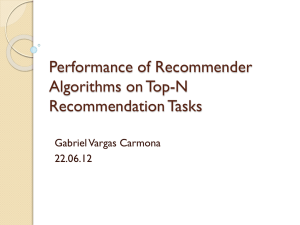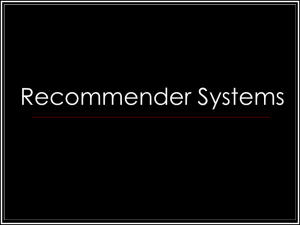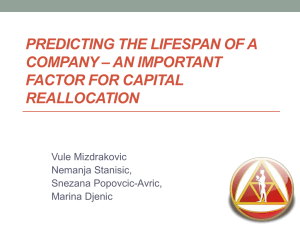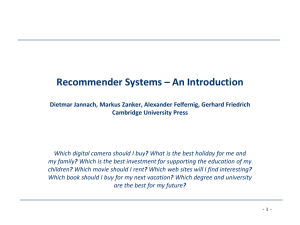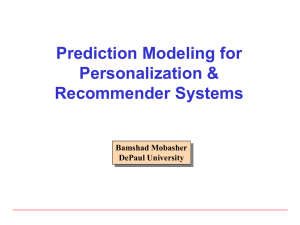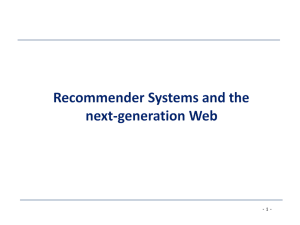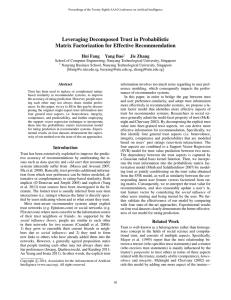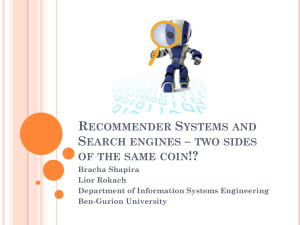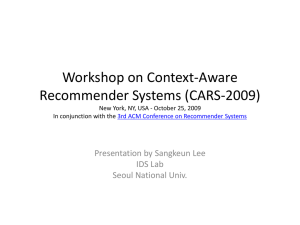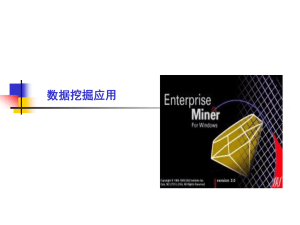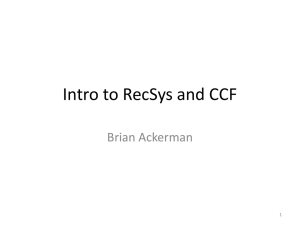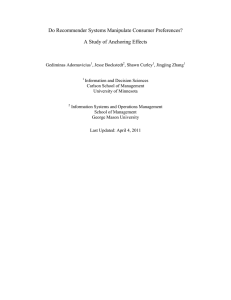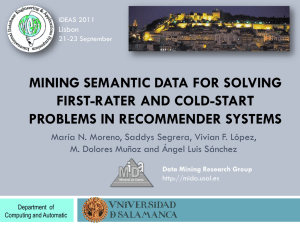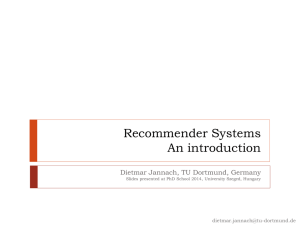Introduction
advertisement
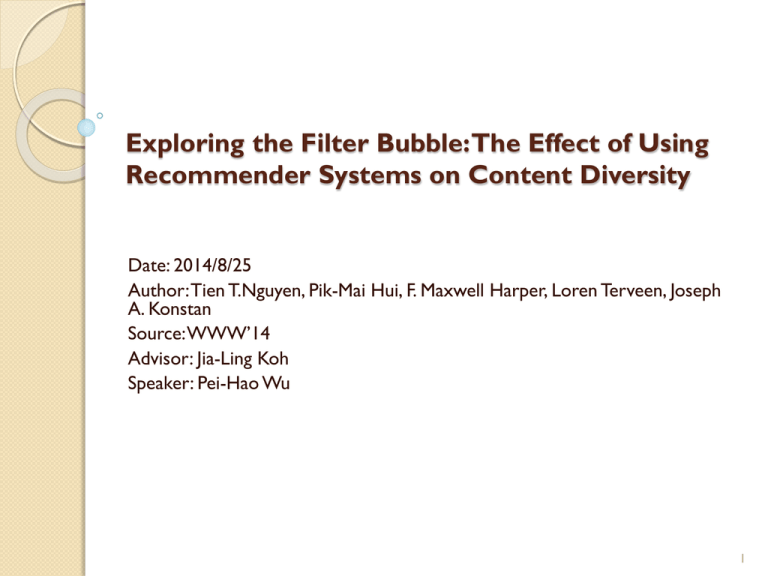
Exploring the Filter Bubble: The Effect of Using Recommender Systems on Content Diversity Date: 2014/8/25 Author: Tien T.Nguyen, Pik-Mai Hui, F. Maxwell Harper, Loren Terveen, Joseph A. Konstan Source: WWW’14 Advisor: Jia-Ling Koh Speaker: Pei-Hao Wu 1 Outline Introduction Data and Method Result Conclusion 2 Introduction Motivation 1. Recommender systems provide users with personalized information offerings 2. Researchers have wondered whether recommender systems become more narrow over time 3 Introduction Filter Bubble 4 Introduction Questions 1. Do recommender systems expose users to narrower content over time? 2. How does the experience of users who take recommendations differ from that of users who do not regularly take recommendations? 5 Outline Introduction Data and Method Result Conclusion 6 Data MovieLens Longitudinal data Top Picks For You A recommender system with a well-know recommender engine Collaborative filtering algorithm An expressive way to compute content diversity Tag-genome 7 Longitudinal data Top Picks For You Display movie the user has not seen Ordered predicted ratings from the highest to the lowest 8 An expressive way to compute content diversity Tag-genome Help users navigate and choose movies An expressive way to characterize movie content 9 Identifying recommendation takers Rating Block Remove the first 15 ratings Remove all of the ratings from the first three months 10 ratings per rating block Drop the last not enough 10 block 1405 users 173010 ratings on 10560 distinct movies Accessed “Top Pick For You” 150759 times 10 Identifying recommendation takers Indentifying consumed recommendations in a rating block The movie was in “Top Pick For You” between 3 hours and 3 month 11 Identifying recommendation takers Classify users Following Group Users took recommendations in at least 50% 286 users Ignoring Group Users did not take any recommendations 430 users 12 Measuring content diversity Tag genome The relevance score rel(t,m) takes on values from 1 to 5 Euclidean distance 13 Measuring the effect of recommender system Content Diversity average pair-wise distances of the movies in the list Compute the top 15 recommended movie User Experience Per user rating average of movies in a given rating block 14 Measuring the effect of recommender system Group Comparison Within-group comparison Examine content diversity of a group Between-group comparison Examine content diversity between two group 15 Outline Introduction Data and Method Result Conclusion 16 Question 1 Do recommender systems expose users to narrower content over time? Yes. Compare the content diversity of recommended movies at the beginning and at the end of a rating history 17 Question 2 How does the experience of users who take recommendations differ from that of users who do not regularly take recommendations? (a) Does taking recommendations lower the consumed content diversity? Yes. 18 Question 2 (b) Did the Following Group have better experience? Yes. 19 Question 2 (c) What does the change of rating average mean? The rating changes 0.12 Define the positive experience index as the percentile of per user rating average If the average rating of a user is at 90th percentile, that means he receives more positive experience than the rest of 90 % user Following Group: First: average rating of 3.69, 58.93th percentile Last: average rating of 3.68, 57.72th percentile Ignoring Group: First: average rating of 3.74, 63.63th percentile Last: average rating of 3.55, 44.77th percentile 20 Outline Introduction Data and Method Result Conclusion 21 Conclusion Find evidence for two forms of narrowing Recommendation-following users received more diverse top-n recommendation lists than non-following non-following user narrowed the content diversity, but the effect was smaller than Recommendation-following Our work has several limitations. We cannot be sure if people are really following MovieLens recommendations, since we are using log data analysis methods. Additionally, users may be influenced by recommendations from other information sources or from their friends. 22
